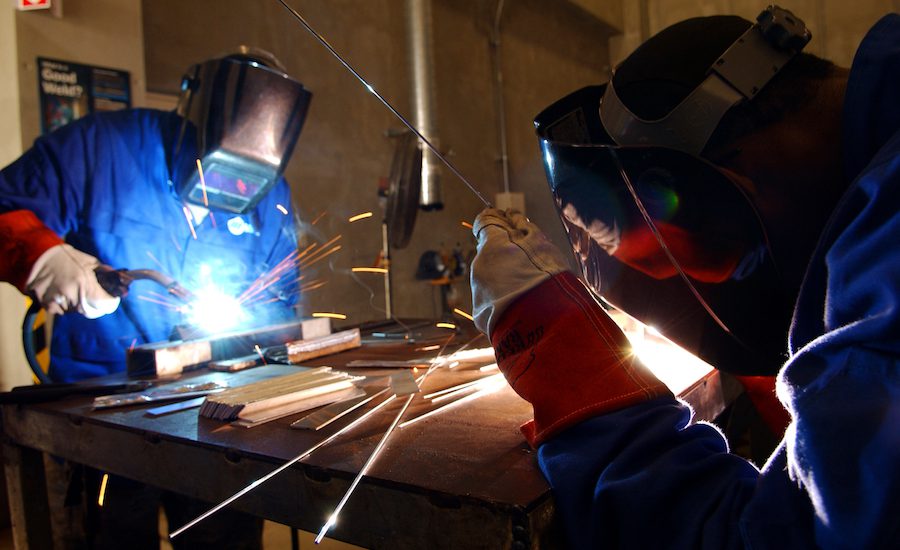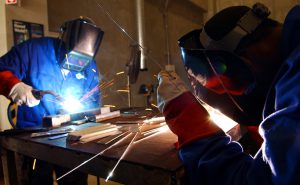- March 13, 2019
- Posted by: David Marshall
- Category: Management, Manufacturing

In Indiana, there’s a rather unusual vocational school called Driver Solutions, a truck driving school where students learn how to properly drive a tractor-trailer rig in three weeks. Students who qualify, and can pass the different drug and health tests, will not only get a job immediately after they graduate, their schooling is paid for.
That’s because the Driver Solutions is a recruiting and training school for several trucking companies who are desperately in need of drivers. And because the economy is doing fairly well right now, the need for drivers is always growing.
So the best way to get them? (This is the unusual part.) Rather than recruit drivers from other companies, they pay for the training for their own drivers and hire them after their three-week study, sending them on the long-haul trips, while the more experienced drivers move up to the shorter local routes.

(U.S. Air Force photo/Tech. Sgt. Rey Ramon)
The federal government has some retraining programs available, but that doesn’t always help manufacturers in the short-term.
So maybe it’s up to the manufacturers to start training their employees instead.
Badges! We need some stinkin’ badges
Of course, technical schools often have two-year degrees, and that’s not soon enough to get someone up and running, such as a CNC operator or 3D printer operator. You can’t wait for an associate to go to school for two years. And they certainly can’t take two years off with no work or income.
But there’s another solution: Badges.
There has been a movement in some industries to measure knowledge and experience in terms of badges, which are a form of certification. Rather than going to college for 2 or 4 years, or sitting through a year-long series of certification classes, you can earn badges after completing each class or certification, demonstrating that you have a proficiency in that field.
For example, if there are six levels of proficiency in CNC routing, an associate can earn a badge with each class you take. With each new class completed (and final exam successfully passed), the associate earns another badge, which lets them handle more responsibilities and even increase their pay with their new expertise.
According to the MacArthur Foundation:
Digital badges are an assessment and credentialing mechanism that is housed and managed online. Badges are designed to make visible and validate learning in both formal and informal settings, and hold the potential to help transform where and how learning is valued.
And OpenBadges.org says that badges can represent different achievements and claims, including:
- Hard skills such as proficiency in a programming language
- Soft skills like collaboration
- Participation
- Official certification
- Authorization
- Community involvement
- New skills and literacies not recognized by traditional education providers
So what if your organization could create a badge system that required your associates to have certain skills and knowledge, as demonstrated through a degree or through a series of certification tests, that demonstrated they can operate your more advanced equipment?
Associates can earn badges for things like CNC machine programming, energy management, HVAC repair, mechanics, 3D printing, and so on. The badges can either be created in concert with your operations staff, your local community colleges and vocational schools, your equipment manufacturers, vendor partners, or even an organization like OpenBadges.org.
Then, associates can begin taking classes, whether online or at one of many technology skill schools, and focus on the education needed to operate certain types of machinery. You can begin training your existing staff, or even start recruiting new associates from your vendors, competition, and even the vocational school graduates who are completing the same education.
I’ve been a manufacturing executive, as well as a sales and marketing professional, for a few decades. Now I help companies turn around their own business. If you would like more information, please visit my website and connect with me on Twitter, Facebook, or LinkedIn.

